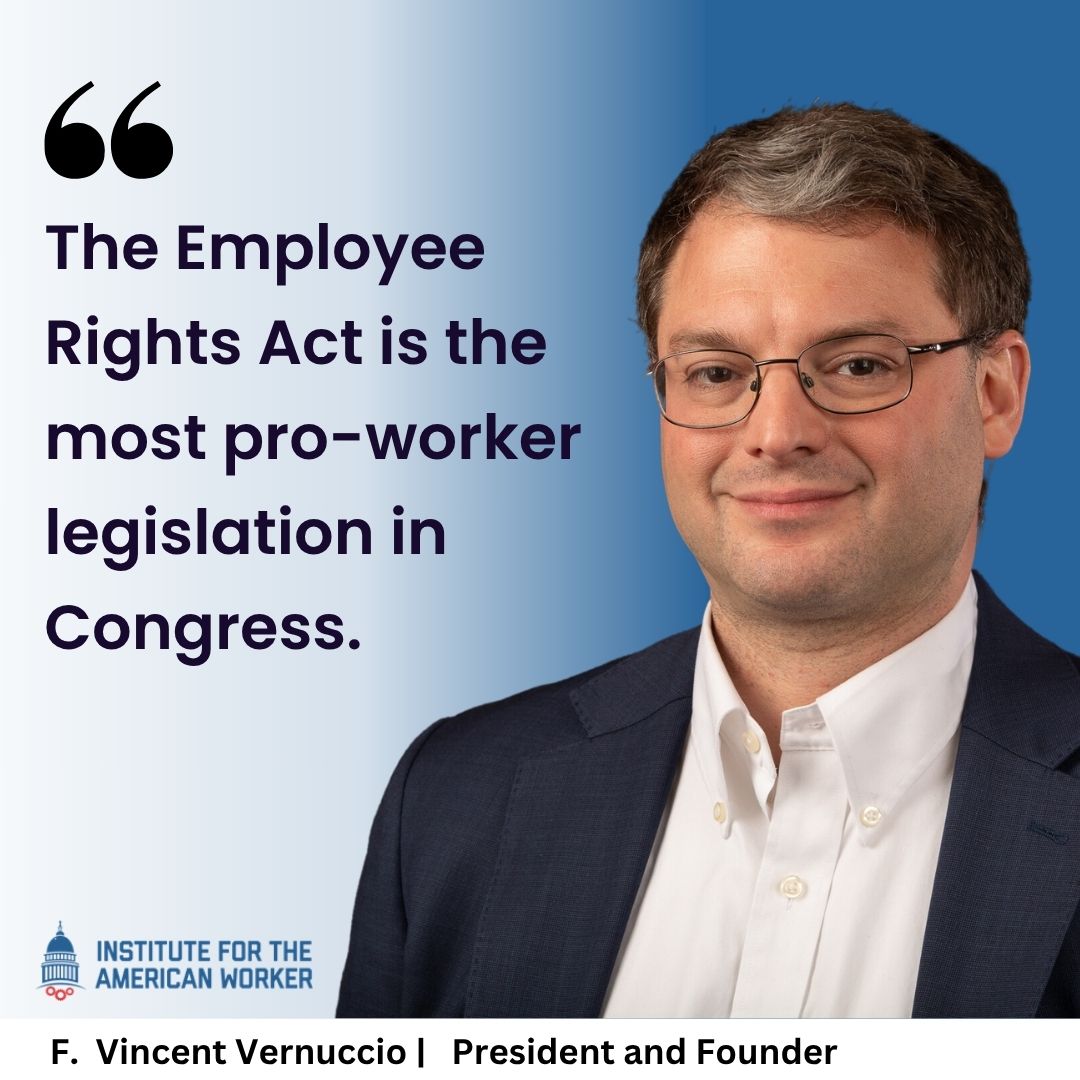Posts tagged secret ballot elections
National Right to Work Foundation Issues Notice to VW Chattanooga Employees Impacted By UAW Boss-Ordered Strike
November 4, 2025 // Notice informs VW Team Members of their rights in light of a potential strike at Tennessee production plant

Commentary: Trumpworld thinks overturning this Biden labor rule gives GOP a double-digit midterm elections boost
October 29, 2025 // Only 22% of respondents in Fabrizio’s poll supported the NLRB’s 2023 rule “that allowed unions not to use secret ballots,” with 64% opposed. Fabrizio wrote that Republican Congressional candidates “would benefit significantly from supporting overturning this unpopular rule.” “The initial generic ballot is a statistical dead heat, 44% Democrat – 43% Republican (D+1), but if the Republican candidate supported overturning the NLRB rule so workers could once again rely on secret ballots when voting to unionize, the Republican pulls into a 47% – 36% (R+11) lead, a 12-point shift,” the memo reads. “Among Swing voters, the Republican goes from 1-point ahead to 17-points.”
Labor Unions Are Chipping Away at Worker Freedoms One Bill at a Time
October 14, 2025 // The so-called Faster Labor Contracts Act is one of the first steps in this new tactical departure. The legislation would force employers to begin bargaining with a new union in just ten days. If the two parties don’t reach an agreement in 90 days, the government forces mediation. One month after that, the matter goes to binding arbitration, meaning an outside arbitrator will dictate wages, benefits, and workplace rules for years to come. That’s not worker freedom. It’s top-down federal control. Americans recognize proposals like this for what they are: a Washington power grab. A U.S. Chamber of Commerce survey released just two weeks ago found that 90% of voters oppose government-mandated union contracts without worker approval.

Testimony: Rachel Greszler: Labor Law Reform Part 1: Diagnosing the Issues, Exploring Current Proposals
October 10, 2025 // SummaryToday’s challenges—from the rise of artificial intelligence to the expansion of independent work and the growing demand for flexibility, autonomy, and new skills—necessitate modernized labor laws that are pro-worker and pro-employer, regardless of the type of workplace. Heavy-handed government interventions and attempts to bring back the 1950s’ ways of work are not the answers. American labor laws should preserve the freedom, dignity, and opportunity that make American work exceptional.

Senator Tim Scott Reintroduces the Employee Rights Act to Empower American Workers
October 8, 2025 // “The Employee Rights Act is the most comprehensive labor legislation of this Congress, from protecting the secret ballot and unionization elections, to safeguarding workers from harassment and protecting their privacy, to putting workers in control of their own destiny. It truly puts the American worker first. We applaud Senator Scott for his steadfast leadership and support of worker freedom,” said F. Vincent Vernuccio, President of the Institute for the American Worker. This legislation was cosponsored by Senators John Barrasso (R-WY), Kevin Cramer (R-ND), Mike Crapo (R-ID), John Hoeven (R-ND), Cindy Hyde-Smith (R-MS), Jim Risch (R-ID), and Tommy Tuberville (R-AL).
Commentary: Putting Liberty at the Heart of Labor Policy
September 2, 2025 // High levels of unionization could be a good thing for the state. But the state needs better unions. When unionization is based on coercion and force rather than voluntary association, unions don’t need the support of their members. They can engage in political activity regardless of what their own members believe. They negotiate contract terms based on ideology rather than in the interests of their members. The ongoing corruption scandals at major unions also show that they continue to steal from their own members. There is a better way. That’s why we advocate for 21st Century Unionization, where labor policy is based on the freedom of association.
House Committee Debates NLRB’s Fairness and Transparency
June 18, 2025 // Also at issue was how workers vote for or against unionization. When workers select a union, said Vincent Vernuccio, president of the Institute for the American Worker, they should be allowed to make that choice “securely and privately” and “without intimidation or coercion.” He cited the “true language” of the NLRA that says a “union must be chosen by the majority of all the employees in a unit.” Vernuccio advocated for the use of secret-ballot elections in place of card check, an organizing method in which a union gathers worker signatures.

Republicans Should Support Workers — Not the Failed Union Model
February 6, 2025 // Senator Hawley’s proposal would prevent workers from hearing both sides before a unionization election, which they would need to make an informed decision. Employers would be prohibited from holding meetings with workers. Unions would also be able to force ambush elections, depriving workers of time to do their own research and make up their minds. And, like the PRO Act, the proposal would even give unelected federal bureaucrats the power to force union contracts on workers, employers, and even unions.
National Right to Work Foundation Slams Biden-Harris NLRB Rule Overturning Protections on Workers’ Right to Vote in Secret on Unions
July 31, 2024 // New rule will let union officials bypass secret ballot union vote process entirely or delay decertification votes by months or years
Op-ed: Controversy trails labor union wins under card check
May 20, 2024 // During the meetings, according to the reports, organizers also helped workers apply through an online portal for one-time pandemic-relief payments of $600 from the U.S. Department of Agriculture. The USDA awarded grants to 14 nonprofit organizations, including the UFW Foundation, to disperse the funds to eligible workers. In February, UFW submitted cards to the ALRB signed by 327 of Wonderful Nurseries’ 640 employees. Within days, the company contested the union petition, saying UFW had defrauded its workers. The nursery handed over sworn declarations from 148 employees who said they were tricked into signing the cards and wanted to revoke them. In one declaration, a nursery employee described a meeting at a co-worker’s house organized by UFW Vice President Erika Navarrete. “She had me sign a white card with an eagle and told me to sign a piece of paper. She told me this was part of the process to apply for the $600, but she never explained to me or the others that this was part of the union,” the worker said. “They lied to us.”
